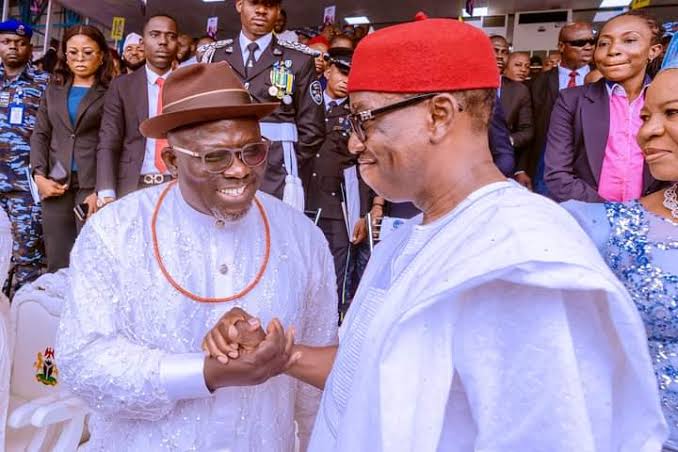Africa
The Odium Of Political Opportunism -By Ike Willie-Nwobu
Between 1999 and 2015, the People’s Democratic Party(PDP) maintained a stranglehold on political power in Nigeria. A devastating defeat in the 2015 election shattered the mystique of the self-acclaimed largest political party in Africa.
The defeat was as unexpected as it was jarring, and to say that the PDP has failed to recover from the defeat would be putting it mildly.

Former vice presidential candidate of the People’s Democratic Party, Ifeanyi Okowa, recently jumped ship to the All Progressive Congress, dragging with him Sherriff Oborevwori the current governor, and a slew of government appointees with them.
The move which apparently has everything to do with political survival clearly has little to do with delivering the dividends of democracy to the good people of Delta State.
The odium of opportunism
Nigerian politicians are adept at taking self-serving opportunities but same cannot be said about them when it comes to taking advantage of countless opportunities to improve the lives of their people. All over the country, defections follow elections with many occupiers of public office ditching their political parties as soon as they win elections. Many of them usually cite a full complement of reasons ranging from the plausible to the utterly laughable to explain their choice to defect.
However, no matter how much they put into explaining their choices, what is clear is that opportunism informs a lot of their thinking and actions.
For many Nigerian politicians, looking back is a mortal sin with what has happened irrelevant to what is to come. Having won elections on the platforms of other parties, the deed is often done for them upon assuming office and it is only a matter of time before they whet their appetite for misdeed by defecting to other political parties.
For many politicians turned office holders in Nigeria, distraction is the name of the game. Unfortunately, in a bid to distract their opponents and drive them to costly but avoidable mistakes, they end up distracting themselves too.
They do long-term planning only when it has to do with retaining their seats such that from the moment they settle into their first terms, they begin scheming to retain their seats without a care in the world over whether they deserve to continue or not.
Politics in Nigeria appears polluted beyond redemption. Many politicians in Nigeria do as they please and damn the consequences if there are ever consequences. The restlessness of Nigerian politicians, especially their relentless ability to frolic between political parties, is a recipe for the political instability which contributes to the wider and more damaging political risk which foreign countries associate with Nigeria.
Between 1999 and 2015, the People’s Democratic Party(PDP) maintained a stranglehold on political power in Nigeria. A devastating defeat in the 2015 election shattered the mystique of the self-acclaimed largest political party in Africa.
The defeat was as unexpected as it was jarring, and to say that the PDP has failed to recover from the defeat would be putting it mildly.
Since it lost the election, a party that had known the perks of political power has shown its hobbling limitations in opposition politics, betraying its poor long-term planning and especially the character of most of its members.
It is many of those members who have continued to change political parties like cloth, further indicting the party and indicating that it is a divided house.
What do frequently decamping politicians take with them to their new political parties? What, if any, do the receiving parties set as conditions before receiving them? Is it not time to impose strict conditions on membership of political parties in Nigeria rather than leaving them open to all manner of stoats and scoundrels?
It is time to take this ugly trend seriously as a moral, political and ideological failure. The Constitution makes provisions to arrest the epidemic of decamping between political parties. Unfortunately, the courts have been reluctant to enforce them.Unless they are stringently enforced, this purulent practice of constant defection from one political party to another will continue to stain Nigeria’s political firmament.
Ike Willie-Nwobu,
Ikewilly9@gmail.com






















